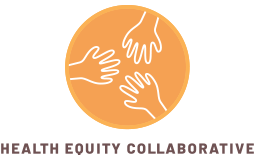03 Dec Coalition Letter: Greater Oversight and Accountability of Federal Relief Program Needed to Combat Food Insecurity
The Health Equity Collaborative joined a coalition letter to Chairwoman Johana Hayes, Subcommittee on Oversight, House Committee on Agriculture and signed by the Alliance to End Hunger, Black Women’s Health Imperative, National Caucus and Center on Black Aging, Inc., and the National Organization of Black Elected Legislative Women. The letter expresses concerns over past federal policies affecting the price of food for low-income Americans and respectfully requests that Congress exercise its oversight role to ensure future misuse of federal policy does not occur.
See the full letter here or below:
December 1, 2021
Chairwoman Jahana Hayes
Subcommittee on Nutrition, Oversight, and Department Operations
House Committee on Agriculture
1301 Longworth House Office Building
Washington, DC 20515
Dear Chairwoman Hayes,
As organizations advocating for more equitable health and nutrition access in the United States, we remain deeply concerned about COVID-19’s disproportionate impact on the well-being of low-income and working-class families, particularly in minority communities. Many studies have shown that the pandemic has placed a greater economic burden on communities of color and has further widened the wealth and opportunity gap between white and non-white households. As our nation prepares for another potential winter COVID wave and the advent of flu season, it is important that government assistance programs are properly targeted and reach the communities most in need. This is even more critical when you consider the recent report that hunger rose for U.S. minorities and children in 2020, despite billions of new federal dollars spent on a wide range of aid programs.
As such, we write today to inquire about the letter sent to then-Secretary of Agriculture Sonny Perdue by this Subcommittee on October 9, 2020, which expressed “deep concerns over the U.S. Department of Agriculture’s (USDA) Farmers to Families Food Box Program.” The letter exposed a multi-billion-dollar program rife with problems, which had a mixed record, at best, of alleviating hunger during the COVID-19 pandemic and recession.
Although this program ended in May 2021, recent news reports detailing the USDA’s previous misuse of resources indicate the need for further oversight. Changes to USDA policy after the first two rounds of funding for the Food Box Program also disproportionately benefited a select group of corporate interests over small, local farms and community-based organizations. This change resulted in fewer boxes being delivered over a period of six months. Fewer deliveries, meant that fewer families were being served.
As we continue to examine COVID-19’s impact on communities of color, more data is needed to understand how policies implemented during that time addressed food insecurity among families disproportionately impacted. Last year, Black families experienced hunger at three times the rate of white families, and Latinos experienced hunger at two-and-a-half times the rate of whites. In addition, Black and Latino families are far more likely than white families to live in food deserts, where a lack of access to fresh fruit and vegetables contribute to worse nutritional outcomes. Black and Latino seniors are also more likely to face hunger, and to experience negative health outcomes for lower nutrient intakes, including diabetes, depression, high blood pressure, heart failure, gum disease, and asthma. Further, food insecurity can have health consequences for Black expectant mothers, who already face far higher maternal death rates than the national average and can lead to gestational diabetes and iron deficiency among expectant mothers, and low birth weight for newborns.
While important steps have been taken to provide relief during COVID-19 so that more individuals have better access to fresh fruits and vegetables, more must be done to ensure healthy foods are inexpensive and accessible for low-income and minority families. This should include curtailing the past misuse of federal policy to benefit certain special interests at the expense of low-income consumers. For instance, the U.S. Department of Commerce, following a joint hearing with the USDA and Office of the U.S. Trade Representative in August 2020, initiated International Trade Commission investigations in an effort to place tariffs on fresh produce. While these investigations did not lead to tariffs and higher prices this time, they do demonstrate the manipulation of federal policy that can benefit one special or political interest and ultimately lead to higher prices for those who can least afford it.
This is why we respectfully ask that the Oversight Subcommittee exercise its accountability role over the USDA and publicly release any information regarding the USDA Food Box program it received in response to the Subcommittee’s October 9, 2020 letter. Additionally, we respectfully request that the Subcommittee send a letter to the Secretary of Agriculture and the Secretary of Commerce requesting additional information regarding the origins of the 2020 Department of Commerce investigations into fresh produce. Further oversight and accountability would shed light on past misuses of federal policy to the detriment of low-income and minority consumers.
Thank you for your attention to this important issue.
Respectfully,
Alliance to End Hunger
Black Women’s Health Imperative (BWHI)
Health Equity Collaborative (HEC)
National Caucus and Center on Black Aging, Inc. (NCBA)
National Organization of Black Elected Legislative Women (NOBEL Women)
###
The Health Equity Collaborative is a national coalition comprised of 34 national organizations who represent diverse communities across the country. The Collaborative fights for social justice and representation in the policymaking process to address pervasive health disparities faced underserved communities.


